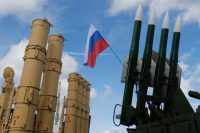
Spycraft and Statecraft
For as long as countries have kept secrets from one another, they have tried to steal them from one another. Espionage has been and will remain an integral part of statecraft, even as its techniques continually evolve. America’s first spies spent the Revolutionary War using ciphers, clandestine courier networks, and invisible ink to correspond with each other and their foreign allies. In World War II, the emerging field of signals intelligence helped uncover Japanese war plans. During the early Cold War, the United States’ intelligence capabilities literally went into the stratosphere, with the advent of the U-2 and other high-altitude spy planes that could photograph Soviet military installations with impressive clarity.… Seguir leyendo »



